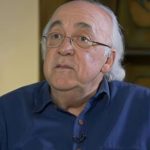Pete Rose’s daughter was in the Seattle airport, getting ready to fly to Cincinnati for a night honoring her father, when she learned the news.
“The emotion just kind of came over me,” Fawn Rose, the oldest of Pete’s five children, said. “I didn’t think the commissioner’s decision was going to affect me as much as it did.”
Advertisement
Fawn Rose’s 17-year-old twins, her son Jude and daughter Eden, saw their mother getting teary and looked at her as if to say, “Oh my God, what happened?” But quickly, they came to understand what happened was good.
Fawn said she wasn’t shocked Tuesday when commissioner Rob Manfred removed her father and other deceased players from Major League Baseball’s permanently ineligible list. But her brother, Pete Jr., 55, and sister Cara, 35, had the same emotional reaction when she phoned them to share Manfred’s decision. And they all thought the same thing.
“I wish our dad was here to share this with our family and with all the fans,” Fawn said.
Pete Rose died last Sept. 30 at 83. The very next day, the family’s attorney, Jeffrey Lenkov, called Fawn. Referencing his nearly decade-long quest to get Pete reinstated, Lenkov told Fawn, “We’re going to get it done.”
Lenkov originally did not plan to bring Fawn with him to meet in New York with Manfred and MLB chief communications officer Pat Courtney on Dec. 17. But before the meeting, Lenkov realized it might be the only opportunity he and the family would have to plead Pete’s case.
“It was vital to hear Pete’s voice through his children, that Fawn was the proper choice as the oldest,” Lenkov said. “I didn’t prep Fawn. I wanted her to organically express her opinion.”
Which Fawn did.
“I didn’t sugarcoat anything. It was the good, bad and the ugly,” she said. “He’s at fault. But he’s our dad. And he’s human.”
Courtney, speaking for Manfred, declined to discuss details of a private meeting, and the impact Fawn might have made on the commissioner. But following the league’s announcement Tuesday, Fawn said she joked to Pete Jr., “Dad should have sent me in years ago. I would have closed it quick with the commissioner.”
The reality, of course, was more complicated.
Advertisement
The late commissioner Bart Giamatti banned Rose in 1989 after investigator John Dowd confirmed Rose that violated Rule 21 (d) (2), which states that any player, umpire or club or league official who bets upon a game in which the bettor has a duty to perform shall be declared permanently ineligible.
Giamatti told Rose he needed to “reconfigure” his life as a condition for reinstatement. The next three commissioners, Fay Vincent, Bud Selig and Manfred, kept the ban intact. Manfred twice rejected Rose’s petitions for reinstatement, in 2015 and 2020.
Lenkov acknowledged that Rose sabotaged repeated possibilities for baseball to give him a second chance.
“Manfred has to protect the product. He has to maintain the integrity of baseball. It’s a big rule to overcome,” Lenkov said. “Since 2015, when I knew Rose and prior to when I wasn’t involved, every time there was an opportunity, Pete sort of screwed it up, or made it seem like he didn’t care.

Fawn Rose speaks to local media at the dedication of Pete Rose Field in Cincinnati on Tuesday. (C. Trent Rosecrans/The Athletic)
“When people ask me, ‘Are you angry it occurred now?’ No. I’m angry that every time I got Pete close, he found a way to do something, like Bad Luck Shleprock, to denigrate the opportunity.”
While Pete was alive, Fawn said she and Pete Jr. talked about how it would be logical for Manfred to lift the ban after their father passed. But they didn’t know whether that was the decision Manfred actually would make.
Fawn still didn’t know after she and Lenkov met with Manfred and Courtney in the commissioner’s office. She entered the meeting uncertain of how Manfred would react, “just because I’m Pete’s daughter and my dad is a bit controversial.” But she left more than satisfied.
“I can’t even tell you what a great experience it was,” Fawn said. “(Manfred) was very gracious. It was a great dialogue. I felt like he really listened. This will probably sound stupid, but he listened to me almost from his heart.
Advertisement
“I came away feeling extremely hopeful and heard. That’s what I wanted from the meeting. Just the opportunity, to present another side, to present a side of Pete Rose the man, Pete Rose the father, Pete Rose the grandfather. What it meant to him. His sort of arrogance, (acting like) it didn’t matter . . . I think it really did matter. I wanted to really convey that piece of who he was to the commissioner.”
The meeting, Lenkov felt, was a positive first step, something akin to a preliminary hearing. Fawn said she had a spring in her step afterward. Lenkov, maintaining the detached perspective of an attorney, knew the process was only beginning.
“I didn’t leave clicking my heels down the street saying, ‘We got this,’” Lenkov said.
Fawn told select family members about the meeting, but said she put them on a gag order. She didn’t even tell her mother, LaVerne, 84, about the renewed effort to get Pete reinstated. The league did not request she remain silent, Fawn said. But out of respect to Manfred, she didn’t want the issue to reach the media, didn’t want pressure to mount from the outside.
“For us, it was more about, let’s get some closure,” Fawn said. “Let’s go one way or another. Then we can put this piece to bed.”
Lenkov’s next move was to draft a new petition for Rose’s reinstatement, which he submitted to Manfred on Jan. 8. For all the time he spent working on Rose’s behalf, he said he never asked the family for money. Fawn confirmed that Lenkov performed all of his services pro bono, and said her father’s reinstatement would not have happened without the attorney’s relentless approach.
“He didn’t let it go,” Fawn said. “My understanding is that he made a commitment to my dad that he would see it through. And he absolutely saw it through.”
One more quest remains for Lenkov and the family – the induction of Rose into the Hall of Fame.
The removal of Rose from the permanently ineligible list means he now will become eligible for Hall consideration. Jane Forbes Clark, the Hall’s chairman of the board, said Tuesday that the players Manfred removed from the list, including Shoeless Joe Jackson and other members of the 1919 Black Sox, will be judged by the Classic Baseball Era Committee. That group, which evaluates candidates who made their greatest impact on the game prior to 1980, next votes in December 2027.
Advertisement
Fawn said her father’s induction into the Cincinnati Reds Hall of Fame in 2016 was extremely meaningful to Rose and the family, carrying added weight because it took place in their hometown. Rose, baseball’s all-time hit king, always wanted his place in the National Baseball Hall of Fame, too.
Asked what she might say to a committee that one day might consider her father for Cooperstown, Fawn initially paused.
“There is part of me that just wants to focus on this moment,” she said. “This is a big first step, not just for my dad, but for other players who received lifetime bans.”
But then Fawn, just as she did for Manfred, made her father’s case.
“His achievements on the field, I don’t think there’s ever going to be another Pete Rose, someone who played with heart and grit and left everything on the field and played every day for the fans,” Fawn said. “When he made the comment that he’d run through (hell) in a gasoline suit (to play baseball), he meant that.
“He was really that blue collar worker. That’s the one thing I would want the Hall of Fame to look at – the accomplishments of the player on the field. That’s really important. I know there’s the other side of it. I’m a parent. But I’m a kid.
“I think it’s just meaningful. And I just wish he could be around if it did happen.”
(Top photo of Pete Rose with his son Pete Jr. and daughter Fawn in January 1976: AP Photo)
This news was originally published on this post .







Be the first to leave a comment